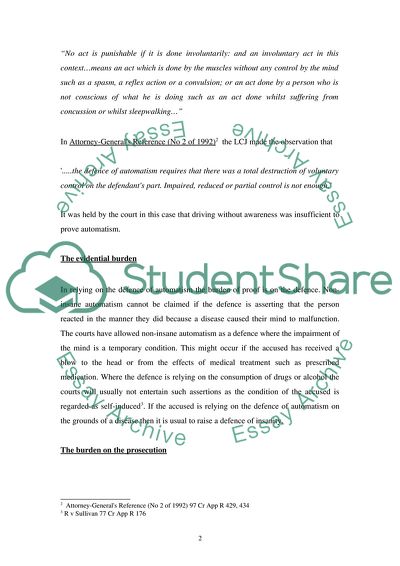Cite this document
(Automatism, Mental Health Issues, and a Defence of Diminished Case Study - 9, n.d.)
Automatism, Mental Health Issues, and a Defence of Diminished Case Study - 9. Retrieved from https://studentshare.org/law/1712055-criminal-law
Automatism, Mental Health Issues, and a Defence of Diminished Case Study - 9. Retrieved from https://studentshare.org/law/1712055-criminal-law
(Automatism, Mental Health Issues, and a Defence of Diminished Case Study - 9)
Automatism, Mental Health Issues, and a Defence of Diminished Case Study - 9. https://studentshare.org/law/1712055-criminal-law.
Automatism, Mental Health Issues, and a Defence of Diminished Case Study - 9. https://studentshare.org/law/1712055-criminal-law.
“Automatism, Mental Health Issues, and a Defence of Diminished Case Study - 9”. https://studentshare.org/law/1712055-criminal-law.


